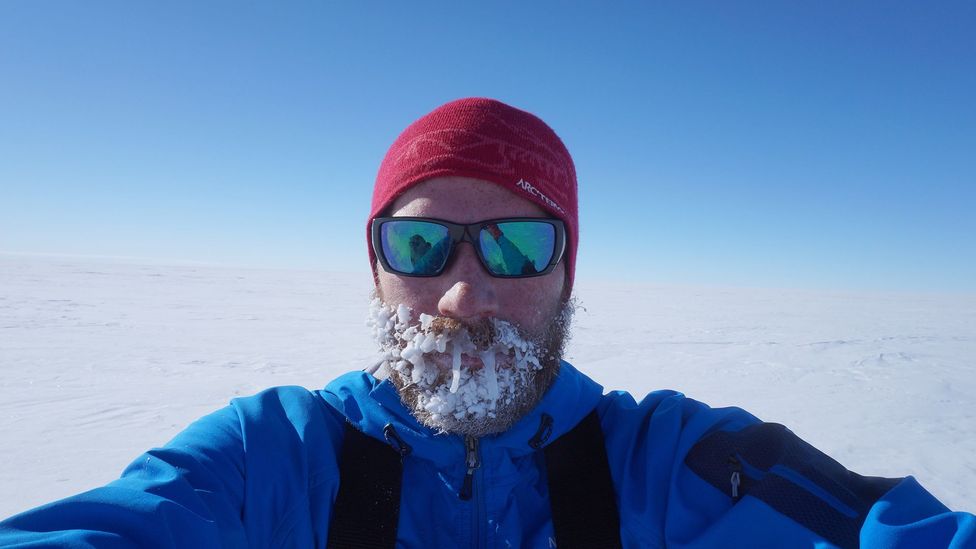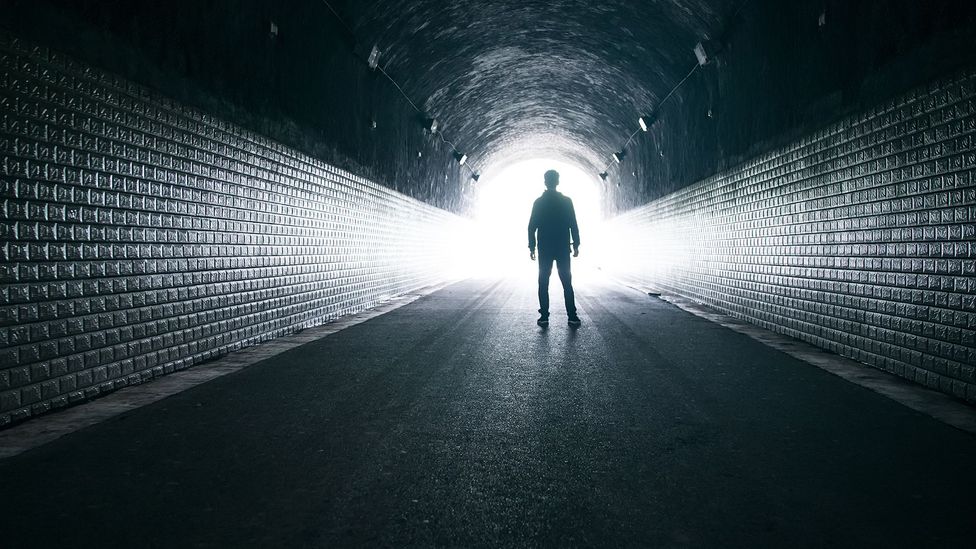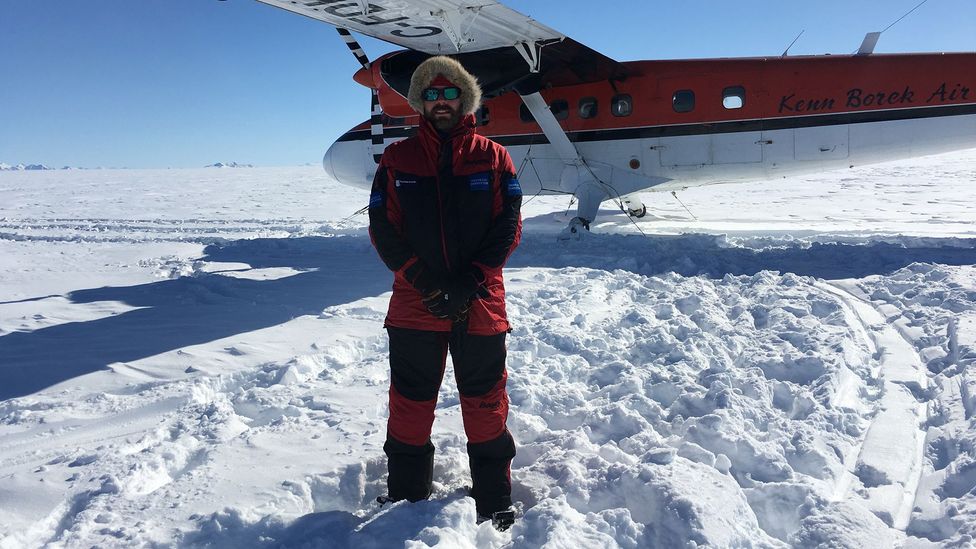
'Felt presence': Why we sometimes feel invisible others
- Published By Jane Njeri For The Statesman Digital
- 2 years ago
It was 2015 and Luke Robertson was skiing across Antarctica alone. There was nothing to see but vast expanses of snow and ice. Two weeks into a planned 40-day unsupported journey to the South Pole, he was behind schedule, feeling exhausted and demoralised. Then he looked up and to his left he saw… green fields. And not just any green fields, but the fields of his family's farm in Aberdeenshire, Scotland. There too were the house and garden he grew up in. It was a sight that was both scary and comforting.
When I talked to Robertson on All in the Mind on BBC radio he told me it was weird . But things were to get weirder still. His charging equipment wasn't working so he couldn't listen to the music he had with him. The only sound accompanying him was the squeak of his skis on the ice and the howling of the Antarctic wind. But for some reason the theme tune of The Flintstones was playing constantly in his head. Nothing so strange about that perhaps – we all experience this sensation of tunes that become ear worms – but then he saw characters from the cartoon series ahead of him, on the horizon.
As the days went by his experiences became stranger. He heard someone shouting his name and became convinced someone was behind him, following in his footsteps. Yet, every time he turned around to check, there was no one there. Even so, he couldn't shake of this feeling of another presence – one that remained with him until he reached the South Pole.
When he sat down on his sledge, weak with exhaustion, and closed his eyes for a second, he heard a second voice – female this time – urging him to get up, and not to fall asleep, which could be dangerous. He felt her leading him onwards. The voice might even have saved his life. But again, no one was there.
Other explorers and adventurers have reported feeling similar presences, notably Ernest Shackleton, who had a sense of a "fourth man" accompanying his three-man party on the final stage of their epic trek across South Georgia in 1916. Everest mountaineers have also experienced these phantoms acting as guardian angels, helping them to survive and providing an eerie comfort. Sometimes it's referred to as the "third man factor".

As Luke Robertson slogged further into his solo South Pole trek, he had more episodes of "felt presence" (Credit: Luke Robertson)
In psychology, this experience is known as a "felt presence". Ben Alderson-Day, an associate professor of psychology at Durham University in the UK, is the author of a new book called Presence: The Strange Science and True Stories of the Unseen Other. He has found that these experiences are not limited to people in extreme situations. You may well have had the sense yourself at some point that someone is right there in the room with you, even though you can't see them. It's not uncommon after a bereavement or in people who have psychosis. As many as a quarter of those with Parkinson's report experiencing it. It can also happen when you're on the cusp of waking or falling asleep.
For some the experience can occur as part of sleep paralysis, where you wake up, but can't move. People can have the strong sense that someone is in the room with them, or even sitting on their chest, pinning them down. Alderson-Day has found that half the time these experiences involving sleep paralysis involve a very frightening presence.
In his search for explanations, Alderson-Day turns to a combination of the physical and the psychological
A felt presence feels as though it's there with you in your personal space. It's hard to pin down exactly what a felt presence consists of. It's not experienced via the five physical senses of touch, sight, hearing, smell or taste, so it's not an hallucination. Objectively, in reality, there is nothing there at all. Yet they're not quite delusions either, which involve thoughts. Nor is it the same as imagining someone is there. People sometimes talk of something as nebulous as "a thickness in the air". It's almost like a sixth sense, which feels very real at the time. As Alderson-Day puts it: "It's too empty to be a hallucination, but too tangible to be a delusion."
In his search for explanations, Alderson-Day turns to a combination of the physical and the psychological. With mountaineers and explorers, a lack of oxygen to the brain may play a part, something which is also known to induce hallucinations. But there's also the survival aspect. Is the mind somehow conjuring up a presence that helps us through?

The feeling of a mysterious presence is sometimes associated with those who've had a bereavement, suffered psychosis or have diseases such as Parkinson's (Credit: Getty Images)
Robertson's own explanation is that his brain was creating what he needed most to help him through the arduous journey, sometimes painting comforting pictures of home to help him cope with the bleakness and loneliness he was experiencing. At other times, evoking the voices that he needed to encourage him to plough on.
Some people are more prone to experiencing a felt presence than others. In some of their research, Robertson and his team found that women were more likely to report presences, and were more likely to find them distressing or intrusive. Felt presence is also more common in younger people. In a laboratory in Geneva researchers have devised a robot which, through a complex procedure, can trick your brain into making you sense that someone is behind you. People with Parkinson's are particularly susceptible to the experience.
Just as we see patterns such as faces in clouds, we might spot a person when there isn't one
An unusual pattern of brain activity has been found in a network including the temporoparietal junction, the insula and the frontoparietal cortex, areas associated with integrating the senses and also with the sense of where you own body is. The range of situations where a felt presence can occur has led Alderson-Day to hypothesise that the cause is a loss of the sense of the boundaries of our body.
When something is amiss, due to extreme physical stress on the body, as with Robertson, or psychosis or Parkinson's, the information we have from our senses can lead to the peculiar sensation that someone is with us, even though we can't see, touch or hear them. But expectation also seems to play a part. There is a second theory related to what's known as predictive processing, the idea that the brain fills in the gap when something doesn't quite make sense. So just as we see patterns such as faces in clouds, we might spot a person when there isn't one. As Alderson-Day puts it, the brain is "taking an informed guess at what's out there".

Robertson's brain might have been creating the "company" he needed to complete his arduous trek (Pic: Provided by Luke Robertson)
The way we experience a felt presence can depend on our personal feelings and beliefs. It might feel comforting, as it was for Robertson, or malign or religious perhaps, depending on how you interpret the experience – a guardian angel maybe or a ghost or a visitor or your brain trying to help you.
Alderson-Day believes both the body and the mind need to be studied if this common experience is ever to be truly understood.
In the meantime, beginning to talk about the experiences might make them feel less alarming for some. While people with psychosis are asked by clinicians about any voices they might hear, it's much rarer for them to be asked about felt presence. Alderson-Day believes these sensations are worth exploring. Then strategies for dealing them could be shared. Or just knowing you're not alone might be helpful.
Robertson made it to the South Pole in the end, although when he first saw the research station he thought he was imagining it, when in fact he had reached his destination. He would also like more discussion of these experiences to allow explorers like him to understand what's happening to them and to help them focus on the task at hand, in order that the unseen visitor can help rather than hinder.
Share on
SHARE YOUR COMMENT
MORE STORIES FOR YOU
Trending Stories
DJ Mo’s former illicit lo...
- Published By Jane
- January 15, 2024
Mapenzi! Zari and Tanasha...
- Published By Jane
- October 24, 2023
Zuchu Speaks on Diamond P...
- Published By Jane
- October 12, 2023
Hio Ni Upumbavu Wasituche...
- Published By Jane
- November 8, 2023
RECOMMENDED FOR YOU
How People are Using AI t...
- Published By The
- October 29, 2025
How Raila Odinga’s Death...
- Published By The
- October 29, 2025
What is Ayurveda? Raila O...
- Published By The
- October 29, 2025
Why Parents Should Spend...
- Published By The
- October 29, 2025
Latest Stories
Is It Really Love At Firs...
- Published By Jedida
- November 4, 2025
What Are Chia Seeds and H...
- Published By Jedida
- November 4, 2025
Little Known Garden Herb...
- Published By Jedida
- November 4, 2025
Former US Vice President...
- Published By Jedida
- November 4, 2025



